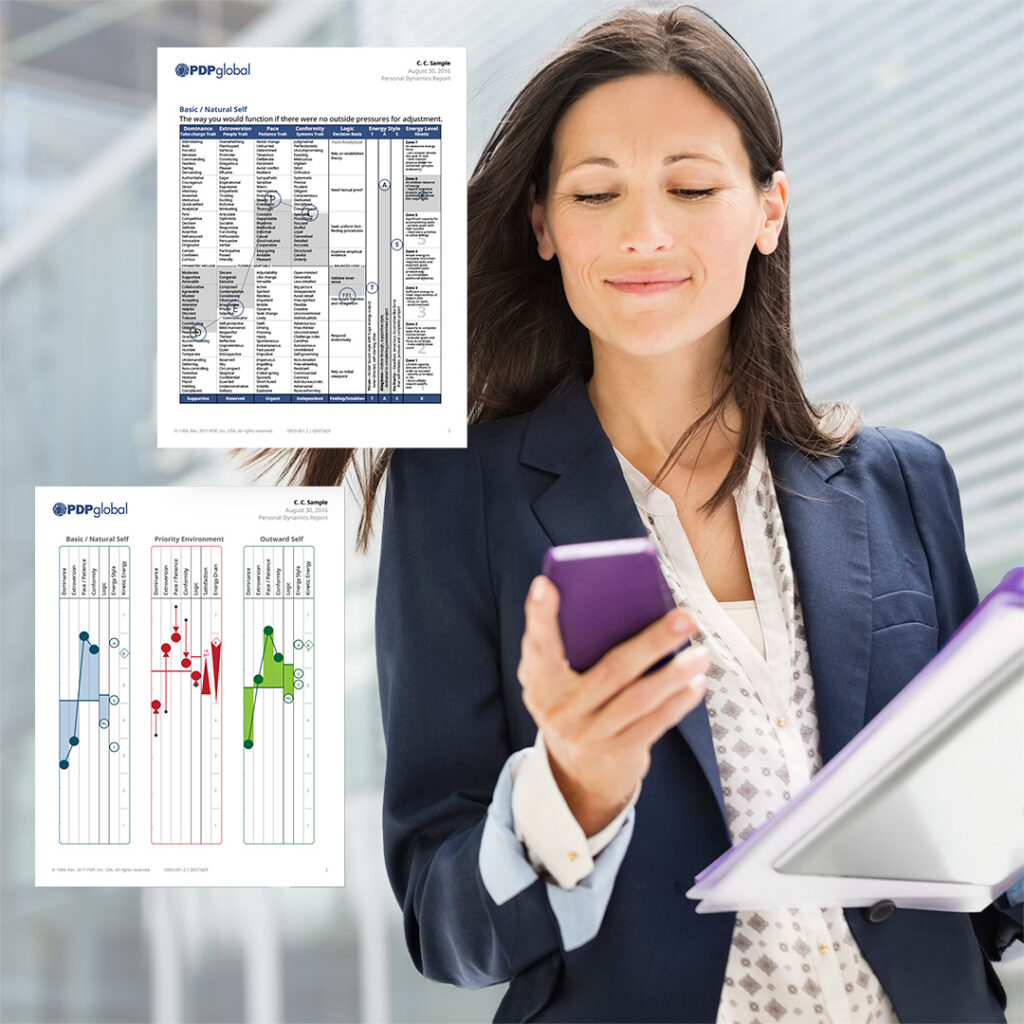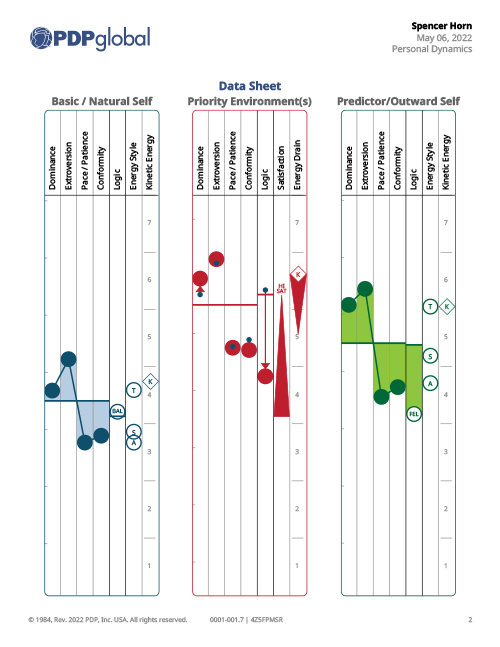Free Personality Assessment
Click Below to Download
Here are Three more FREE downloads
Limited Time offer
NEED A MORE ACCURATE IN-DEPTH ASSESSMENT?
Flexibile Authenticity
Discover your leadership style with the ProScan Behavioral Assessment
Our proprietary assessments are deeply rooted in science by using statistical analysis, not by proving a theory.
The result is superior assessments unparalleled in accuracy.
The ProScan Survey measures the dynamics of individuality—how individuals act, react, communicate, lead and manage stress. ProScan dynametrics include:
- Behavioral traits
- Decision-making style
- Energy measures—energy styles, energy level
- Trait adjustments due to external and internal pressure
- Satisfaction index
- Energy drain and available energy level
- Motivators
- Overriding needs
Get started by taking our free Personality Assessment or contact us to complete our full DynaMetric Behavioral Assessment.
$425 Value for only $50

PDP ProScan Survey
Does the PDP ProScan Survey have a personality model?
Yes. The PDP ProScan Survey personality model depicts the four cornerstone traits with four colored rings, each representing a trait covered in the ProScan report. The additional dynametric elements extend the value of the ProScan beyond the typical four-trait instrument. We call them cornerstone traits to emphasize their strength and stability as the foundation of the ProScan Survey.

What does the ProScan Survey measure?
Consisting of 60 highly researched self-descriptive adjectives, the ProScan Survey instrument measures important behavioral traits in people from three perspectives: the true person (Basic/Natural Self), the pressures the person is experiencing (Priority Environments), and the projected persona (Predictor/Outward Self). The four cornerstone traits the ProScan Survey measures are Dominance, Extroversion, Pace, and Conformity.
Dominance: The Take-Charge Trait
Individuals with high dominance are described as direct, decisive, innovative, and competitive. They get results and exert or challenge authority. Those with low dominance are supportive, moderate, and at peace with others.
Extroversion: The People Trait
Individuals with high extroversion are described as enthusiastic, persuasive, and influential; they seek opportunities, build teams, and delegate technical tasks. Those with low extroversion are contemplative, private, and unpretentious. This is also called the social/relational trait.
Pace: The Patience Trait
Individuals with high pace are described as steady, consistent, persistent, dependable, and cautious about change. Those with low pace are spontaneous, versatile, and action-oriented with a sense of urgency. This is also known as the rate of motion trait.
Conformity: The Systems Trait
Individuals with high conformity value structure, rules, accuracy, and loyalty. They will follow and maintain established systems and procedures they perceive to be right. Those with low conformity want independence, personal freedom, and minimal external controls. This is also referred to as the quality assurance trait.
What are dynametrics?
From the beginning, PDP was designed to be a business application that did not require users to be licensed psychologists or counselors. Instead, the intent was that through PDP’s certification process, an individual could gain the understanding and know-how to administer, interpret, and apply the PDP survey instruments and processes. The researcher at the time suggested that we use the term dynametrics to avoid any confusion with educational degrees or licensing options in the psychometric industry. Thus, dynametric became the D in PDP—Professional DynaMetric Programs.
What are the additional dynametrics?
Besides the four cornerstone traits, the ProScan Survey assesses the following additional measurements called dynametrics.
Logic—how individuals make decisions:
• High logic—analytical and factual in their decision-making process
• Low logic—intuitive; processing decisions based on life experiences
Energy Styles—the way people approach tasks or accomplish goals:
• Thrust—a burst of energy; a self-igniting style like a rocket to launch a task or a goal
• Allegiance—a dedicated energy style for accomplishing predetermined tasks or goals; a preference for following through to completion, often because of dedication to group or organization
• Ste-Nacity—a combination of steadfast and tenacious; the persistent pushing, or pulling determination to accomplish a task or goal, often based on internal drive
Energy Level—the capacity, internal “battery,” or innate energy resources of a person that determine the mental, emotional, and physical vigor he or she will approach a task with
Stress Adjustments—the pressure(s) experienced externally or internally to adjust a natural style of behavior
Satisfaction—the degree to which fulfillment of goals or gratification of needs or desires is felt:
• High satisfaction—the sense that effort exerted is bringing results
• Low satisfaction—the sense that goals and aspirations are not being adequately met
• Overexpectation—indication of high satisfaction that may occur when more is expected of the individual than is perceived to be comfortable or reasonable



